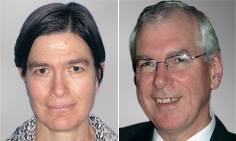A RECENT systematic review of guidelines for the management of extremely premature infants has found wide variations in some recommendations.
There was a general consensus in the guidelines, published by government or professional bodies in highly developed countries (including Australia), to provide comfort care for those born at 22 weeks and active care for those born at 25 weeks, but wide variation were found between and within countries for the management of 23–24-week gestation deliveries.
Should we be surprised by these findings?
We believe not, as it is well known that survival and outcomes of extremely low-gestational-age infants vary between and within countries, so it is not surprising that the guidelines vary as well.
It is worth noting that the systematic review excluded hospital specific guidelines, and the guidelines considered from Australia were not representative of all Australian states but rather came from a NSW and ACT consensus workshop and from South Australia.
At first the variation in recommendations may seem disquieting. However, the limitations of these guidelines need to be considered as they generally suggest that gestational age alone can be used to make resuscitation decisions.
However, this is overly simplistic. Survival depends on other factors such as weight, sex, place of birth, antenatal steroid use, fetal factors and obstetric management in labour.
The guidelines also assume an accurate gestational age, which may not be available. The gestational age assigned may contain a margin of error that is big enough to result in an infant straddling different weeks in the guidelines.
In addition, if the guidelines are rigidly followed then there is the possibility of seeing the flawed situation where before midnight a baby will not be resuscitated, yet after midnight a baby would be resuscitated.
Using the guidelines as rules rather than guidelines means avoiding in-depth consideration of each case by all team members, when we would argue each baby, each pregnancy and each family is individual.
The variation in the guideline recommendations reflects the complexities of decision making in this situation.
Decision making and counselling at short gestation is challenging. The mother’s pregnancy is often suddenly no longer tracking normally, resulting in time constraints to adequately counsel parents.
As well as the uncertainty of the gestational age to consider, another area to reflect on is that parents and health care providers (HCPs) may have different views of the counselling process.
Research on the divergent views influencing communications between parents and HCPs found parents need to hear the full range of information, including not being given “false hope” and the uncertainty inherent in future predictions. They need to know every chance is presented and hold onto hope to give them the emotional energy to cope.
Information positively framed, despite including potential complications, was better received than negatively framed information, whereas HCPs reported a different view. They felt that hope was related to the outcome of whether a child could survive or be born without disability. HCPs are also influenced by their own experiences and struggle with finding a balance between hope and false hope in counselling sessions.
There is evidence from hypothetical scenarios on whether resuscitation should be offered that indicates extremely premature infants were less often chosen for resuscitation than older patients, despite having prospects of identical or better outcomes.
Perhaps the variation in guidelines reflects in some way this bias against the premature infant.
The message from these variations is that guidelines can’t replace individual decision making and can’t make these difficult decisions any easier.
Dr Mary Sharp is a neonatal paediatrician and head of department at King Edward Memorial Hospital for Women, Perth, WA. She is also a member of the Centre for Neonatal Research and Education at the University of WA and a committee member of Specialist Advisory Committee in Neonatal Perinatal Medicine, Royal Australasian College of Physicians. Associate Professor Noel French is a neonatal paediatrician and clinical associate professor at the Centre for Neonatal Research and Education at the University of WA. He is head of the Neonatal Follow-up Program of the Neonatology Clinical Care Unit of King Edward Memorial Hospital and Princess Margaret Hospital for Children.

 more_vert
more_vert